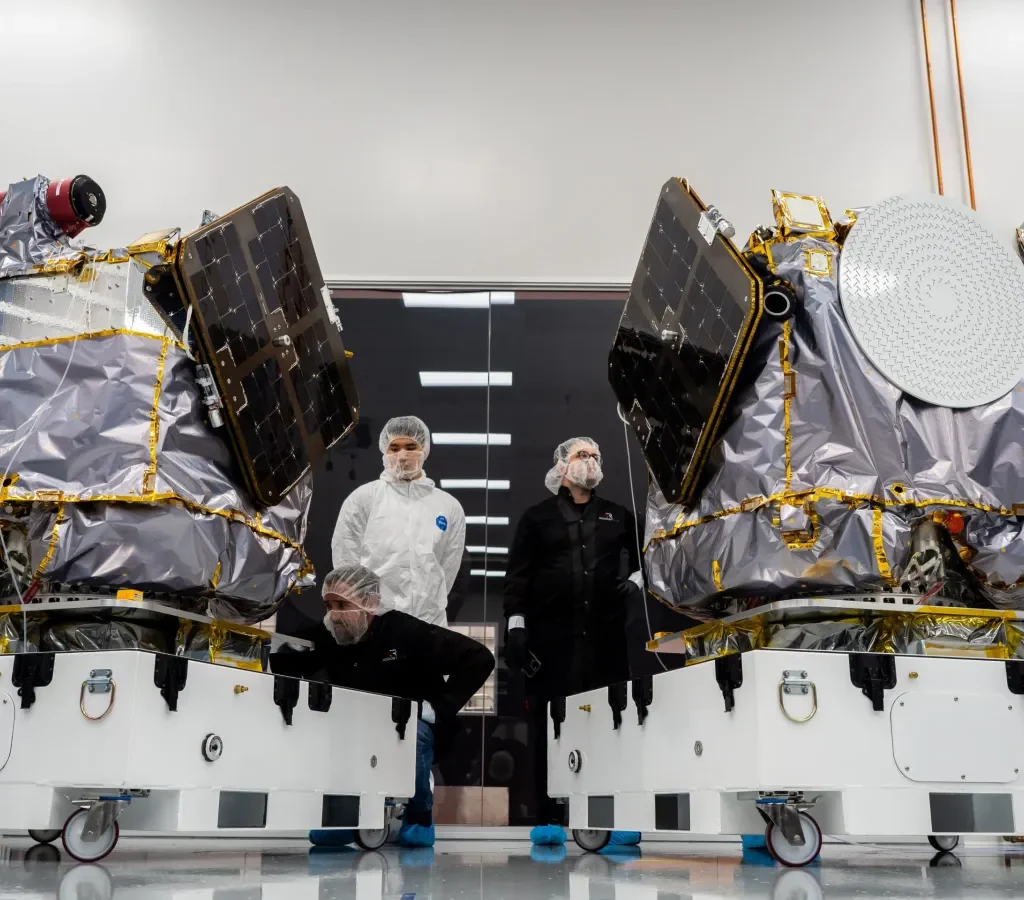Rocket Lab is expanding aggressively into the U.S. defense satellite market, with its recent $275 million acquisition of satellite payload provider Geost marking a key step in the company's broader plan to become a full-spectrum prime contractor for military space programs.
“We're not done,” Rocket Lab CEO Peter Beck said in an interview, hinting at further acquisitions ahead. Once focused primarily on launching small satellites, Rocket Lab now aims to be what Beck calls a “disruptive, nontraditional prime” — delivering complete satellite systems that integrate design, manufacturing, integration, and launch capabilities.
The company emphasizes agility, vertical integration, and manufacturing speed as its competitive advantages. “We want to make sure that we are positioned to be exactly what the U.S. government is asking for,” Beck said, “and that is, a new, disruptive prime that can deploy at a cost, in a frequency that hasn't been achieved yet.”
Since 2020, Rocket Lab has acquired five firms central to satellite production, including Sinclair Interplanetary (hardware), Advanced Solutions Inc. (software and guidance), Planetary Systems Corp. (separation systems), and SolAero Holdings (space-grade solar panels). The company is also in the process of acquiring Mynaric, a German firm that supplies optical communications terminals for satellite laser links.
The Mynaric purchase followed Rocket Lab's selection of its terminals for a $515 million contract with the U.S. Space Development Agency (SDA). Beck explained, “We chose Mynaric as our optical terminal in our SDA program because we believed it was the best. It was the lightest and the highest performing terminal.” He noted that Mynaric, like many space startups, faced challenges scaling manufacturing — an area where Rocket Lab excels.
Although Rocket Lab does not yet control the entire supply chain for its SDA satellites, Beck said it now owns “a large majority of the high-risk items that have caused issues in the past.” Satellite propulsion is a key risk area flagged by the SDA, fueling speculation it could be Rocket Lab's next acquisition target. Beck declined to confirm, saying only, “Watch this space.”
Beck contends the defense satellite sector is ripe for disruption as new constellations and missile defense systems drive demand for rapid, cost-effective deployments. “These programs are typically dominated by the large defense primes,” he said, “but the way we've built these kinds of things in the past won't work going forward.”
Rocket Lab plans to continue supplying components like Geost payloads and Mynaric terminals to other contractors, but its long-term goal is to offer end-to-end satellite systems. “This will not be our last acquisition,” Beck said. “We'll continue to build the scale and the capability of the company. The opportunities in national security are extremely large. So we want to make sure that we can play within those large opportunities. And this gives us a good anchor point to be able to do that.”
